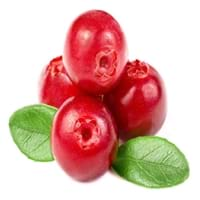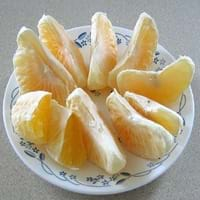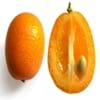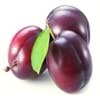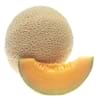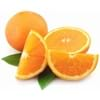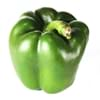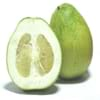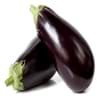Health Benefits
Cancer prevention, Heart care, Kidney stone treatment, Scurvy treatment, Ulcer prevention
Increases metabolic rate, Lower blood pressure, Protects against kidney stone formation
General Benefits
Anti-inflammatory properties, Boosts immune system, Digestive aid, Fights against infections, Strengthens bones
Gives you energy
Skin Benefits
Anti-aging benefits, Reduces wrinkles, Skin rejuvenation, Treatment of acne
Skin cleansing
Hair Benefits
Promotes longer and healthier hair, Protects hair, Treatment of dandruff
NA
Allergy Symptoms
Anaphylaxis, Breathing difficulty, Itching, Skin rash, Swelling of mouth, tongue or lips
NA
Side Effects
Allergic reaction, Diarrhoea, Nausea, Stomach pain, Vomiting
Affects blood glucose levels, Decrease in blood sugar levels, Coagulation
Best Time to Eat
Any time except an hour after meal, Don't consume at night and before bed
As a snack in the late afternoon, Eat the fresh ones, avoid mixing with any other foods, don't eat after meal., Morning time (before lunch)
Vitamin A (Retinol)
Not Available
Vitamin B1 (Thiamin)
Not Available
Vitamin B2 (Riboflavin)
Not Available
Vitamin B3 (Niacin)
Not Available
Vitamin B5 (Pantothenic Acid)
Not Available
Vitamin B6 (Pyridoxin)
Not Available
Vitamin B9 (Folic acid)
Not Available
Vitamin C (Ascorbic Acid)
Vitamin E (Tocopherole)
Not Available
Vitamin K (Phyllochinone)
Not Available
Lutein+Zeaxanthin
Not Available
Water Content
Not Available
Calories in Fresh Fruit with Peel
Calories in Fresh Fruit without Peel
Not Available
Not Available
Calories in Frozen Form
Not Available
Calories in Dried Form
Not Available
Calories in Canned Form
Not Available
Calories in Pie
Not Available
Varieties
Early Black, Howes, Ben Lear and Stevens
NA
Inside Color
White
Creamy Yellow
Origin
North America
Jamaica
Soil Type
Clay, Sandy, Well-drained
Loamy
Climatic Conditions
Warm
Warm
Facts about
- Europeans thought the cranberry blossom looked like the head of a sandhill crane, hence the name Cranberry.
- They are also known as bounce berries as they bounce when they ripe.
- Cranberries do not grow in water.
- The name is derived from the word "ugly" refering to the it's unpleasant appearance, with rough, wrinkled, greenish-yellow rind, wrapped loosely around the orange pulpy citrus inside.
Top Producer
United States of America
Jamaica
Other Countries
Azerbaijan, Belarus, Bulgaria, Canada, Latvia, Macedonia, NA, Romania, Tunisia, Ukraine
NA, United States of America
Top Importer
Europe
Europe
Top Exporter
United States of America
Jamaica
Botanical Name
Vaccinium Macrocarpon
Citrus reticulata × Citrus paradisi
Synonym
Oxycoccus macrocarpus
Tangelo, citrus tangelo
Subkingdom
Tracheobionta
Tracheobionta
Division
Magnoliophyta
NA
Class
Magnoliopsida
Unknown
Subclass
Dillenhidae
Rosidae
Order
Ericales
Sapindales
Family
Ericaceae
Rutaceae
Species
Vaccinium macrocarpon
C. reticulata × paradisi
Generic Group
Heath
Citrus fruit
Difference Between Cranberry and Ugli fruit
We might think that Cranberry and Ugli fruit are similar with respect to nutritional value and health benefits. But the nutrient content of both fruits is different. Cranberry and Ugli fruit Facts such as their taste, shape, color, and size are also distinct. The difference between Cranberry and Ugli fruit is explained here.
The amount of calories in 100 gm of fresh Cranberry and Ugli fruit with peel is 46.00 kcal and 45.00 kcal and the amount of calories without peel is Not Available and Not Available respectively. Thus, Cranberry and Ugli fruit belong to and category.These fruits might or might not differ with respect to their scientific classification. The order of Cranberry and Ugli fruit is Ericales and Sapindales respectively. Cranberry belongs to Ericaceae family and Ugli fruit belongs to Rutaceae family. Cranberry belongs to Vaccinium genus of Vaccinium macrocarpon species and Ugli fruit belongs to Citrus genus of C. reticulata × paradisi species. Beings plants, both fruits belong to Plantae Kingdom.
